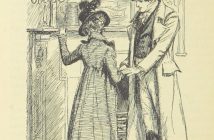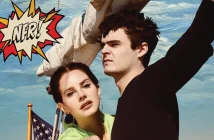Ginger. Baby. Scary. Sporty. Posh. The pseudonyms smack of 90s sparkles and crimped hair, teamed with excessive flamboyance and the scent of ‘Girl Power’. To say the Spice Girls marked their stamp fervently on the musical world would be an understatement. ‘Wannabe’ hit number one in 31 different countries; their album Spice sold 1.8 million copies in Britain alone; and their biography Girl Power sold 200,000 copies on its first day of release. They were pop sensations of the 90s with their own feature length film, but how do we view them now?
In December 1999, I dashed out of my nativity play at school 30 seconds prior to the arrival of baby Jesus (I say Jesus, really it was another Baby Born product with only one leg from where several girls had been a little overzealous in trying to carry him/it to ‘Bethlehem,’ aka the corner of the playground) and jumped in the car with two tickets to the Spice Girls Christmas Tour flapping around in my podgy seven-year-old fingers.
It was my first concert experience, so needless to say I gorged myself with bittersweet candyfloss and walked around with a furry pink moustache for the majority of the performance. But did I care? No. I jumped to ‘Wannabe’ and ‘2 Become 1’ (clearly unaware of the obvious sexual connotations of the latter) and bounced like a kangaroo on crack, much to the annoyance of the couple behind me who winced every time my sticky fingers wiggled dangerously close to their seats.
Yet this success was fleeting. Since when did Sporty Spice become the butt of every lesbian joke? And since when did the subject of Ginger’s weight flummox up and down magazine columns more times than you could say “a-zig-a-zig-ah”? How did things change so drastically? The truth is, the glory of girl bands is ephemeral.
Nowadays, the Spice Girls are somewhat ridiculed and disparaged for their feel-good tunes, which only really make an appearance during drunken nights at Jesters. A lot has changed since 1999, when nobody could say a bad word about the group without being kicked by my seven-year-old Hello Kitty trainers. Nowadays, few would call them ‘legends’. People like Kurt Cobain, John Bonham and Johnny Cash are seen as legends, but the term has never really been applicable to pop girl groups. Sure, we have the likes of Joan Jett and Debbie Harry, but their music has rather a different flavour.
It seems to me that the status of a rockstar can withstand the test of time, but alas the status of a popstar cannot. If we travel back to the 70s and think of boozy Bonham’s strengths as a drummer, we can’t criticise him. He is both an idol and a deity to every man and woman who has always wanted to beat the hell out of cylindrical containers. But if we look back at Sporty Spice’s ability to hit a high F, all we do is mock her for harbouring lesbionic tendencies. Maybe the truth is that we can’t take pop groups seriously at all. Maybe the twang of their feel-good jingles is not strong enough to withstand the influx of contemporary artists like Rihanna, whose outfits make Geri Halliwell’s Union Jack dress look like a Sunday school outfit.
Does the short lifespan of a girl group mean that The Saturdays, for example, will become a part of the graveyard of popular culture sometime soon? Is there no hope for these bands whose only motive in life is to make people smile? Let’s face it, we would never compare Baby Spice to Kurt Cobain, so perhaps pop artists should accept their doom from the very dawn of their careers.




1 Comment
I disagree that people don’t see the Spice Girls as legendary. I believe most people of our generation would label them as such — I know I would. They epitomised the peak of a movement of music unstoppable at the time, when girl and boy bands ruled the world and pop music was pretty much the only thing people cared about. What I would say is that maybe they are not considered strictly ‘musical’ or ‘songwriting’ legends, like many of rock’s biggest figures, but more pop legends, like I would say Madonna and whoever else is.